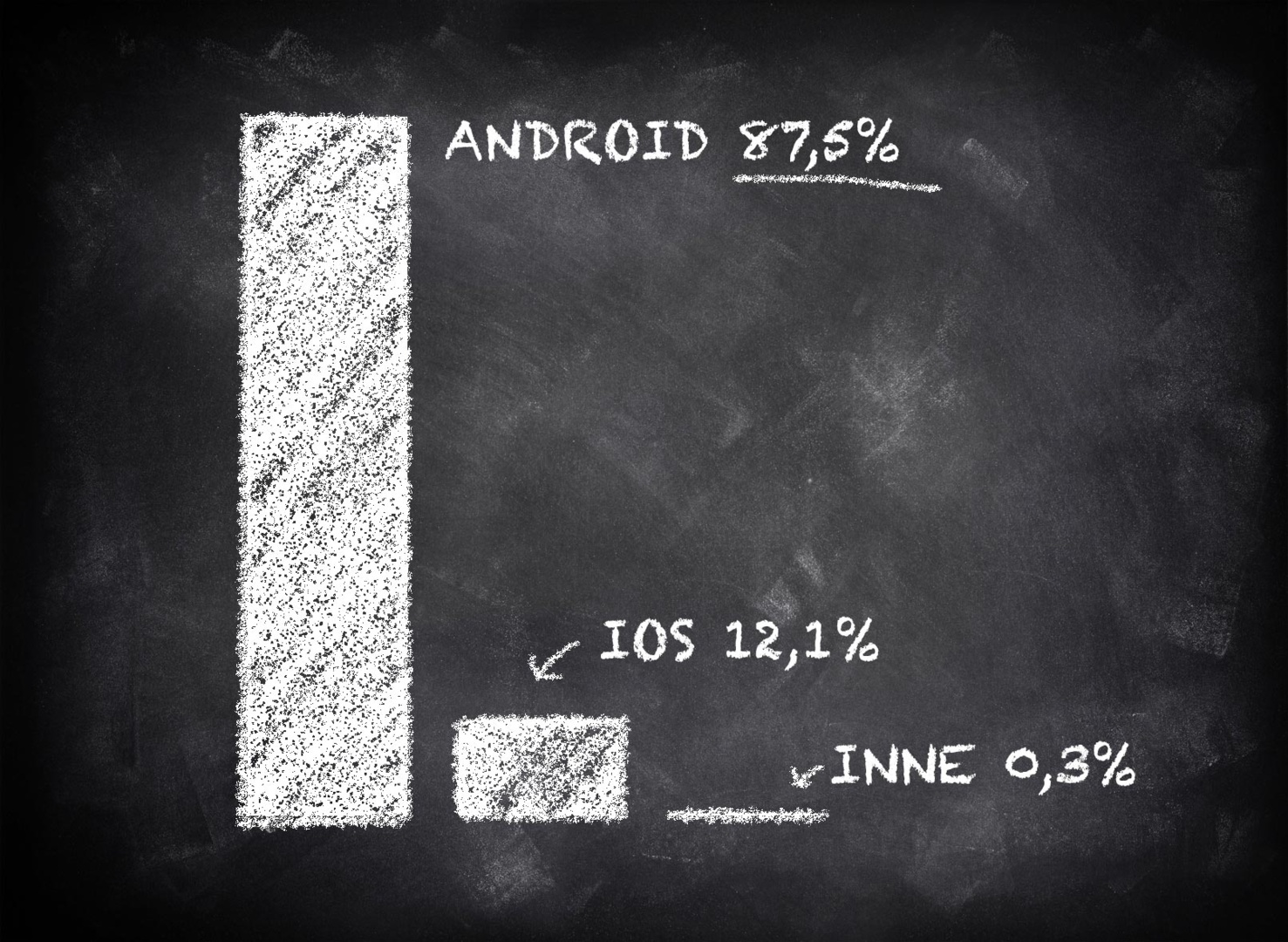Strategy Analytics, a global analytical company, published on 2 November 2016 a report concerning the use of mobile systems. On a global scale Android has 87,5% market share, iOS 12,1% and the others only 0,3%. What does it tell us? Only one out of ten users has a device with iOS. It may be said that it’s not much, however on a global scale it is still a huge number. Demand for iOS applications is not declining. We may assume that iOS users more often use applications than Android users.
Android device manufacturers are rubbing their hands, however, only the biggest count. 88% market share is not directly reflected in the use of applications. Many users of Android use phones for calls, text messages and Internet, namely for those things they used phones with Symbian or similar systems. They buy simple and low-budget models where the main criterion is the price. That’s why those 88% has nothing to do with the earnings of the manufacturers. Apple and its 12% earns much more than all other manufacturers put together. Additionally, the company has huge income from iOS applications.
-
Date of publication
2016
- Category News

